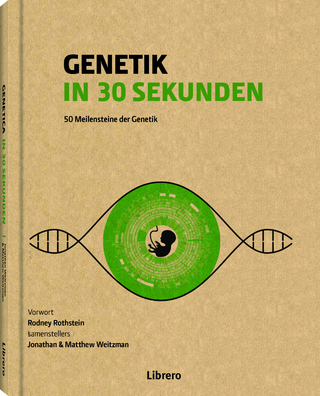
Cell Death Regulation in Health and Disease - Part A
Academic Press Inc (Verlag)
978-0-12-820133-6 (ISBN)
Lorenzo Galluzzi is Assistant Professor of Cell Biology in Radiation Oncology at the Department of Radiation Oncology of the Weill Cornell Medical College, Honorary Assistant Professor Adjunct with the Department of Dermatology of the Yale School of Medicine, Honorary Associate Professor with the Faculty of Medicine of the University of Paris, and Faculty Member with the Graduate School of Biomedical Sciences and Biotechnology of the University of Ferrara, the Graduate School of Pharmacological Sciences of the University of Padova, and the Graduate School of Network Oncology and Precision Medicine of the University of Rome “La Sapienza. Moreover, he is Associate Director of the European Academy for Tumor Immunology and Founding Member of the European Research Institute for Integrated Cellular Pathology. Galluzzi is best known for major experimental and conceptual contributions to the fields of cell death, autophagy, tumor metabolism and tumor immunology. He has published over 450 articles in international peer-reviewed journals and is the Editor-in-Chief of four journals: OncoImmunology (which he co-founded in 2011), International Review of Cell and Molecular Biology, Methods in Cell biology, and Molecular and Cellular Oncology (which he co-founded in 2013). Additionally, he serves as Founding Editor for Microbial Cell and Cell Stress, and Associate Editor for Cell Death and Disease, Pharmacological Research and iScience. Johan Spetz (born 1986) is currently a postdoctoral research fellow at the John B. Little Center for Radiation Sciences at Harvard T.H. Chan School of Public Health. With a background as a Medical Physicist (M.Sc. 2010, University of Gothenburg), Johan Spetz’s PhD (2017, University of Gothenburg) focused on peptide receptor radionuclide therapy of small intestine neuroendocrine tumors and biological effects of radiation. This research prompted a further interest in biology, and lead Johan Spetz to enter a postdoctoral research position under the mentorship of Kristopher Sarosiek at Harvard T.H. Chan School of Public Health, with a focus on the regulation of apoptotic priming in response to stress such as irradiation. Specifically, Johan Spetz has worked on measuring dynamic regulation of apoptotic sensitivity in healthy as well as cancerous mammalian cells throughout development and aging, on a single cell level. Through this research, Johan Spetz has identified subsets of cells which are vulnerable to genotoxic stress, within otherwise resistant tissues. Johan Spetz has also worked on the development of functional assays to measure defects in the intrinsic apoptotic pathway, which may be targeted to enhance cancer therapeutics and/or reduce toxic side effects of treatment. Johan Spetz has published 19 articles in peer-reviewed scientific journals and 90+ scientific conference abstracts.
Preface: Life through death: Key role of cellular suicide for colonial and organismal homeostasis Johan Spetz and Lorenzo Galluzzi
1. Bcl-2 family proteins, beyond the veil Jason Andrew Glab, Zhipeng Cao and Hamsa Puthalakath
2. Mcl-1 as a “barrier in cancer treatment: Can we target it now? Nikolai V. Pervushin, Viacheslav V. Senichkin, Boris Zhivotovsky and Gelina S. Kopeina
3. TRAIL receptor signaling: From the basics of canonical signal transduction toward its entanglement with ER stress and the unfolded protein response Daniela Stöhr, Albert Jeltsch and Markus Rehm
4. Type 3 IP3 receptors: The chameleon in cancer Nicolas Rosa, Flore Sneyers, Jan B. Parys and Geert Bultynck
5. On the role of sphingolipids in cell survival and death Elisabetta Iessi, Matteo Marconi, Valeria Manganelli, Maurizio Sorice, Walter Malorni, Tina Garofalo and Paola Matarrese
6. A lipid perspective on regulated cell death Hector Flores-Romero, Uris Ros and Ana J. García Sáez
| Erscheinungsdatum | 03.04.2020 |
|---|---|
| Reihe/Serie | International Review of Cell and Molecular Biology |
| Verlagsort | San Diego |
| Sprache | englisch |
| Maße | 152 x 229 mm |
| Gewicht | 520 g |
| Themenwelt | Naturwissenschaften ► Biologie ► Genetik / Molekularbiologie |
| Naturwissenschaften ► Biologie ► Zellbiologie | |
| ISBN-10 | 0-12-820133-9 / 0128201339 |
| ISBN-13 | 978-0-12-820133-6 / 9780128201336 |
| Zustand | Neuware |
| Haben Sie eine Frage zum Produkt? |
aus dem Bereich


